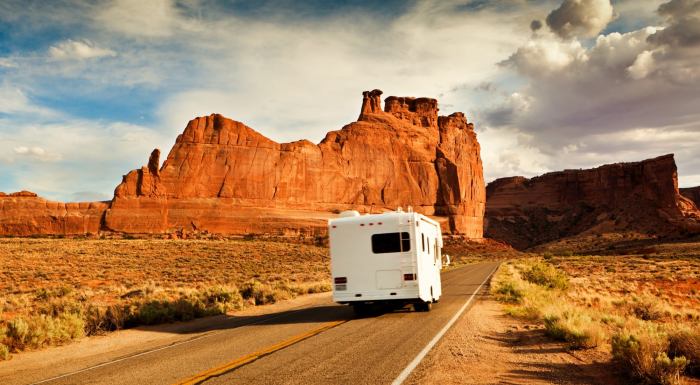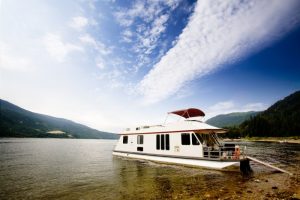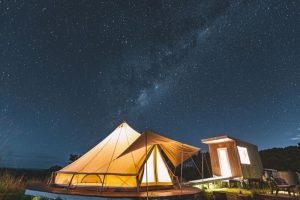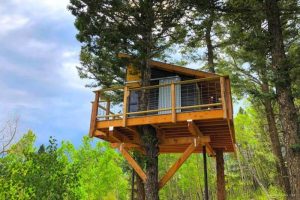
RV trip itineraries offer a unique blend of freedom and structure, allowing you to explore at your own pace while enjoying pre-planned routes and destinations. This guide delves into crafting the perfect RV adventure, from choosing the ideal itinerary to optimizing your budget and maximizing your experiences. Whether you envision a relaxing coastal cruise or an adventurous mountain trek, we’ll equip you with the tools and insights to plan an unforgettable RV journey.
We cover various aspects of RV travel, including detailed itineraries across different US regions, essential packing checklists, budgeting tips, activity suggestions, and comparisons with alternative travel modes. Learn how to navigate potential challenges, book campsites efficiently, and discover hidden gems along the way. Our aim is to transform your RV trip from a simple vacation into an extraordinary adventure.
Planning Your RV Trip
Embarking on an RV adventure requires meticulous planning to ensure a smooth and enjoyable journey. Careful consideration of packing, potential challenges, and campsite reservations will significantly enhance your overall experience. This section Artikels essential steps to help you prepare for your RV trip.
Essential Packing Checklist for RV Trips, RV trip itineraries
A well-organized packing list is crucial for a stress-free RV trip. Categorizing items by necessity helps ensure you haven’t forgotten anything vital.
- Safety: First-aid kit (comprehensive, including any personal medications), emergency flares, reflective triangles, jumper cables, tire pressure gauge, basic tool kit, flashlight with extra batteries, fire extinguisher.
- Cooking: Cooking utensils (pots, pans, cutlery, serving spoons), plates, bowls, cups, mugs, dish soap, sponges, dish towels, can opener, cutting board, knives, food storage containers, cooler with ice packs.
- Entertainment: Books, magazines, board games, cards, portable DVD player (and movies), downloaded podcasts or audiobooks, binoculars.
- Personal Items: Toiletries, medications, clothing appropriate for varying weather conditions, comfortable walking shoes, hats, sunscreen, insect repellent.
- RV Specific: Leveling blocks, sewer hose, water hose, electrical hookup cords, wheel chocks, RV guidebooks, maps.
Potential Challenges of RV Travel and Solutions
RV travel, while rewarding, presents unique challenges. Being prepared for potential issues can prevent significant disruptions to your trip.
- Campground Reservations: Popular campgrounds book up quickly, especially during peak season. Solution: Reserve your campsites well in advance (several months if possible), consider less popular campgrounds or state parks, be flexible with your travel dates.
- Mechanical Issues: Breakdowns can occur unexpectedly. Solution: Regularly maintain your RV before departure, carry a basic tool kit and spare parts (like fuses), know the location of reliable RV repair shops along your route, consider purchasing an RV roadside assistance plan.
- Weather Conditions: Unexpected weather changes can impact your travel plans and safety. Solution: Monitor weather forecasts regularly, pack clothing appropriate for various conditions (including rain gear and warm layers), have a backup plan for inclement weather (e.g., an alternative campsite or indoor activities).
Step-by-Step Guide for Booking RV Campsites
Securing your campsites efficiently is a crucial part of planning. Different platforms offer varying features and benefits.
- Research Campgrounds: Identify potential campsites based on your route, desired amenities (e.g., hookups, showers, swimming pool), and proximity to attractions.
- Choose a Reservation Platform: Popular options include ReserveAmerica (for many state and national parks), Recreation.gov (for federal lands), and private campground websites. Consider factors like ease of use, availability, fees, and cancellation policies. For example, ReserveAmerica offers a wide selection of state park campgrounds, but its interface might be less user-friendly than some private campground websites. Recreation.gov provides access to federal campgrounds, but often requires advanced planning.
- Create an Account: Most platforms require account creation to manage reservations.
- Search for Available Campsites: Use the platform’s search function to filter by dates, location, amenities, and RV size.
- Select and Book Your Site: Once you find a suitable campsite, review the details carefully (including fees, rules, and cancellation policies) before confirming your reservation.
- Confirm Your Booking: Receive confirmation details and keep them readily accessible.
RV Trip Budgeting and Cost Optimization

Planning a successful RV trip hinges significantly on effective budgeting and cost management. Understanding potential expenses and implementing cost-saving strategies can transform a potentially expensive adventure into a financially responsible one, allowing you to maximize your enjoyment without breaking the bank. This section will explore a sample budget, effective cost-saving techniques, and a comparison of RV rental versus ownership.
Sample Budget Breakdown for a Week-Long RV Trip
The following budget represents a sample for a week-long trip for two adults, and may vary based on your travel style, destination, and RV size. Remember that these are estimates, and your actual costs may differ.
| Expense Category | Estimated Cost |
|---|---|
| Fuel | $200 – $400 (depending on distance and fuel efficiency) |
| Campsite Fees | $350 – $700 (average $50/night, varies greatly by location and amenities) |
| Food | $200 – $400 (assuming mostly self-catering) |
| Activities & Attractions | $100 – $300 (depending on chosen activities) |
| Miscellaneous Expenses (Tolls, incidentals, etc.) | $50 – $150 |
| Total Estimated Cost | $900 – $2000 |
Methods for Saving Money on RV Travel
Several strategies can significantly reduce your RV travel expenses. Prioritizing these can make a substantial difference in your overall budget.
Employing cost-saving measures is crucial for maximizing your budget. These methods can substantially reduce your overall expenses.
- Utilize Free Camping Options: Explore options like Bureau of Land Management (BLM) land, national forests, and dispersed camping areas. These often offer free or low-cost camping opportunities, significantly reducing campsite fees.
- Cook Your Own Meals: Eating out frequently can quickly drain your budget. Preparing most of your meals in your RV’s kitchen saves a considerable amount of money compared to restaurant dining.
- Find Discounts on Attractions: Look for discounts and deals on attractions and activities through websites like Groupon, LivingSocial, or AAA. Many national parks and state parks also offer discounts for seniors and other groups.
- Travel During the Off-Season: Traveling during the shoulder seasons (spring and fall) or off-season can result in lower campsite fees and fewer crowds.
- Plan Your Route Efficiently: Mapping your route carefully can help you minimize fuel consumption by avoiding unnecessary detours and choosing the most fuel-efficient routes.
RV Rental versus Ownership: A Cost Comparison
The decision between renting and purchasing an RV depends on your travel frequency and budget.
A thorough cost comparison is essential before deciding between renting or buying an RV. Factors such as frequency of use, maintenance costs, and depreciation significantly influence this decision.
- RV Rental: Renting offers flexibility and avoids the responsibilities of ownership (maintenance, insurance, storage). However, rental costs can add up quickly for frequent travelers.
- RV Purchase: Purchasing provides long-term cost savings if you plan to travel frequently. However, you’ll face expenses like depreciation, maintenance, insurance, and storage when not in use. The initial investment is also substantial.
Consider the total cost of ownership, including depreciation, maintenance, insurance, and storage fees, when comparing the long-term financial implications of purchasing an RV versus renting one.
RV Trip Activities and Experiences
Planning the activities for your RV trip is crucial for maximizing enjoyment and creating lasting memories. A well-rounded itinerary caters to diverse interests and ensures everyone has a fantastic time. Consider the preferences of your travel companions and the unique opportunities presented by your chosen destinations. This section will explore various activities and showcase some exceptional RV trip experiences.
Diverse RV Trip Activities
The beauty of RV travel lies in its adaptability. Whether you prefer adrenaline-pumping adventures or relaxing pursuits, there’s something for everyone. The following list provides a range of options to consider, categorized for easier planning:
- Adventure & Outdoors: Hiking, mountain biking, rock climbing, kayaking, white-water rafting, fishing, camping, wildlife viewing.
- Relaxation & Nature: Bird watching, stargazing, scenic drives, photography, visiting national parks, relaxing by the lake or ocean.
- Culture & History: Visiting historical sites, museums, art galleries, attending local festivals, exploring charming towns.
- Water Activities: Swimming, boating, water skiing, paddle boarding, jet skiing, snorkeling, scuba diving (depending on location).
- Urban Exploration: City sightseeing, exploring local markets, trying new restaurants, attending concerts or shows.
Unique and Memorable RV Trip Experiences
Three distinct RV trip experiences highlight the diversity of adventures available:
- Exploring the National Parks of Utah: Imagine driving your RV through the dramatic landscapes of Arches and Canyonlands National Parks. Picture yourself hiking amidst towering sandstone arches, capturing breathtaking sunsets over vast canyons, and stargazing under exceptionally dark skies. The rugged beauty, combined with the convenience of your RV as a base camp, creates an unforgettable adventure. Days are spent exploring trails and soaking in the awe-inspiring scenery, while evenings offer cozy comfort within your RV under the starlit sky.
- Coastal Cruise along the Pacific Coast Highway: This iconic road trip offers stunning ocean views, charming coastal towns, and opportunities for surfing, whale watching (seasonal), and exploring tide pools. Picture your RV parked overlooking the Pacific Ocean, the salty air filling your lungs as you watch the waves crash against the shore. Each day brings a new coastal vista, a different beach to explore, and the chance to savor fresh seafood in local restaurants.
The journey itself is as rewarding as the destinations.
- Exploring the Great Smoky Mountains National Park: This park offers a blend of lush forests, cascading waterfalls, and opportunities for hiking, fishing, and wildlife viewing. Envision your RV nestled amongst the trees, surrounded by the calming sounds of nature. Spend your days exploring scenic trails, encountering diverse wildlife, and enjoying the tranquility of the mountains. Evenings are spent around a campfire, sharing stories and enjoying the crisp mountain air.
The park’s rich biodiversity and tranquil atmosphere create a truly restorative experience.
Stunning RV Campsite Location
Picture this: Your RV is parked on a grassy knoll overlooking a crystal-clear lake nestled within a Redwood forest. The morning sun filters through the towering redwoods, casting dappled light on the calm water. The air is fresh and cool, filled with the scent of pine and damp earth. Amenities include a fire pit for evening gatherings, picnic tables for outdoor meals, and clean restrooms and showers just a short walk away.
A gentle breeze rustles the leaves overhead, creating a soothing soundtrack to your peaceful retreat. The lake offers opportunities for swimming, fishing, and kayaking, while the surrounding forest provides endless trails for hiking and exploring. This idyllic setting offers the perfect blend of comfort, nature, and adventure.
Related Travel Options
Choosing the right mode of transportation for your vacation significantly impacts your experience. This section compares RV travel with other popular options, considering flexibility, cost, comfort, and overall convenience to help you make an informed decision. We’ll examine road trips, train travel, cruises, and alternative accommodation strategies, exploring how these might complement or replace aspects of an RV journey.
RV Travel vs. Road Trips in Personal Vehicles
RV travel and traditional road trips offer distinct advantages. Road trips in personal vehicles provide greater flexibility in terms of spontaneous detours and shorter trips, often proving more cost-effective for smaller groups due to lower initial investment and operational costs. However, RVs offer significantly more comfort and space, especially for longer journeys or families. The cost difference is significant; while a personal vehicle requires only fuel and maintenance, an RV adds campsite fees, maintenance, and potentially higher fuel consumption to the equation.
Comfort levels also vary dramatically; a personal vehicle might be cramped for long journeys, while an RV provides sleeping space, a kitchen, and a bathroom.
RV Travel vs. Train Travel
Train travel and RV travel cater to different preferences. Train travel excels in scenic routes and convenience, particularly for long distances, eliminating the stress of driving. However, it sacrifices flexibility; itineraries are fixed, and access to remote locations is limited. RVs, conversely, offer unparalleled freedom to explore at your own pace and visit less accessible areas. The scenery experienced is also different; train travel often showcases grand vistas, while RV travel allows for more intimate exploration of smaller towns and natural landscapes.
The cost comparison depends on the length of the trip and class of train travel, but generally, train travel can be comparable to or even exceed the cost of an RV trip, especially for long distances.
RV Travel vs. Cruises
Cruises and RV trips represent contrasting travel styles. Cruises offer all-inclusive packages, simplifying planning and budgeting, with pre-arranged itineraries and entertainment. However, they lack the independence and flexibility of RV travel. RV trips allow for complete customization of your route and activities, offering a higher degree of freedom and control. Cost-wise, cruises can be surprisingly competitive with extended RV trips, but the overall experience differs greatly.
Cruises provide a more structured, social experience, while RV trips offer a more solitary and self-reliant adventure.
Budget Accommodation as Alternatives or Supplements to RV Camping
Integrating budget-friendly accommodation options into an RV itinerary can significantly reduce overall costs and enhance the experience. Budget motels, vacation rentals (like Airbnb), and unique stays (such as treehouses or cabins) offer diverse alternatives to nightly RV campsite fees. For instance, you could use an Airbnb for a few nights in a city to avoid expensive RV park fees and have access to amenities not typically found in campsites.
Similarly, a unique stay could provide a memorable break from RV living, offering a different perspective and experience. This strategic blending of accommodation options allows for a more varied and affordable travel experience, maximizing your budget and minimizing repetitive aspects of the journey.
Exploring Flight Deals, Train Travel, and Cruise Options

Extending your RV adventure might involve incorporating other modes of transportation, offering diverse experiences and potentially cost savings. This section explores strategies for finding affordable flights, planning efficient train journeys, and evaluating cruise options to complement your RV trip.
Finding Affordable Flight Deals
Securing inexpensive airfare requires proactive planning and strategic use of online resources. Employing these tips can significantly reduce travel costs.
- Be flexible with your travel dates. Mid-week flights and those during the off-season often offer lower fares. Consider flying on Tuesdays or Wednesdays, avoiding peak travel periods like holidays and school breaks.
- Utilize flight comparison websites. Sites like Google Flights, Skyscanner, and Kayak aggregate flight data from various airlines, allowing for easy price comparison. Experiment with different departure and arrival airports within a reasonable radius of your destination to uncover potential savings.
- Consider budget airlines and alternative airports. Budget airlines frequently offer lower fares but may have additional fees for baggage or seat selection. Flying into smaller, less popular airports can sometimes lead to lower ticket prices.
Planning a Train Journey
Train travel offers a scenic and relaxing alternative to flying, particularly for shorter to medium distances. Careful planning ensures a smooth and enjoyable experience.
Booking train tickets in advance, especially during peak seasons, is crucial to securing the best prices and preferred seating. Websites like Amtrak (in the US) and Rail Europe provide comprehensive route information and booking services. When choosing routes, consider factors such as travel time, scenic views, and the availability of amenities like Wi-Fi and onboard dining. Packing for a train journey should include comfortable clothing, entertainment (books, tablets), and any necessary medications.
Don’t forget to check baggage allowances and restrictions.
Evaluating Cruise Ship Reviews
Before committing to a cruise, thorough research is essential. Analyzing passenger reviews helps assess the quality of the overall experience.
Focus on specific criteria when reviewing cruise ship experiences. Look for consistent feedback regarding cabin quality, including size, cleanliness, and amenities. Evaluate comments on onboard amenities such as dining options, entertainment, and facilities like pools and spas. Pay close attention to reviews concerning customer service, noting comments about staff friendliness, responsiveness, and problem-solving capabilities. Consider the overall tone and consistency of reviews to get a well-rounded picture of the cruise experience.
Finding Reliable Road Trip Guides
Numerous resources provide detailed road trip guides, but discerning reliable sources is crucial.
Prioritize guides from established travel publishers and reputable websites known for accuracy and up-to-date information. Check the guide’s publication date to ensure the information is current, as road conditions and attractions can change. Look for guides with detailed maps, clear directions, and practical tips on accommodation, dining, and activities. User reviews and ratings can also provide valuable insights into a guide’s reliability and usefulness.
Cross-referencing information from multiple sources helps ensure accuracy and completeness.
Planning an RV trip can feel daunting, but with careful consideration and the right resources, it can be an incredibly rewarding experience. This guide has provided a framework for creating personalized itineraries, managing your budget effectively, and anticipating potential challenges. Remember to prioritize safety, flexibility, and enjoyment as you embark on your journey. The open road awaits – plan your adventure and make lasting memories!
Question & Answer Hub: RV Trip Itineraries
What is the best time of year to take an RV trip?
The best time depends on your destination and preferences. Spring and fall often offer pleasant weather and fewer crowds than summer.
How do I find affordable RV campsites?
Consider using websites like Harvest Hosts or using free camping options on public lands (check regulations first).
What if my RV breaks down during my trip?
Have roadside assistance coverage and a basic understanding of RV maintenance. Carry emergency supplies like jumper cables and a repair kit.
Can I bring my pets on an RV trip?
Many campgrounds allow pets, but always check their policies beforehand. Ensure your pet is comfortable traveling and has necessary vaccinations.





